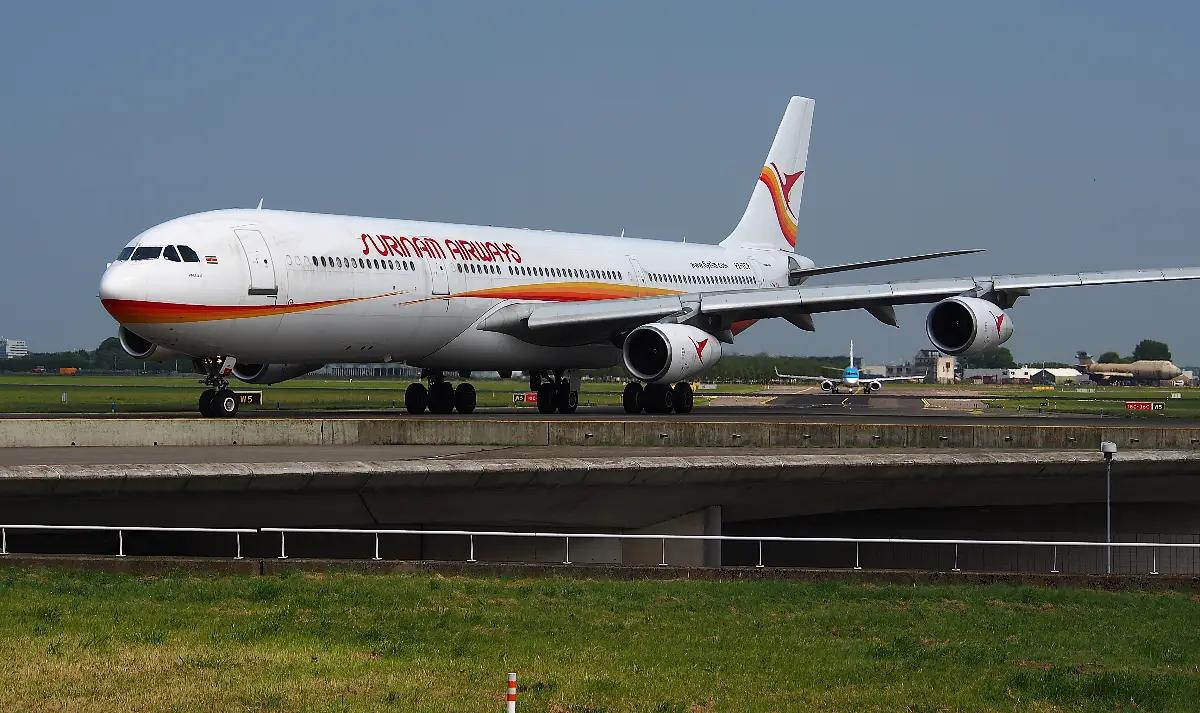
European skies forbidden: Suriname and Tanzania on the EU blacklist
All air carriers of the two countries banned, due to serious deficiencies in oversight, operational, and regulatory compliance

The number of carriers banned from the continent rises to 169, with a constant focus on passenger protection
Passenger safety remains the European Union's highest priority, as demonstrated by the latest update to the EU Air Safety List by the European Commission. Effective from 3 June 2025, all carriers certified in Suriname and Tanzania have been included in this list, resulting in a total operational ban within the EU airspace. This decision, reached following a thorough technical assessment, highlights serious deficiencies in the civil aviation oversight by the national authorities of both countries, which do not comply with international standards.
The measure was officially adopted by the European Commission the day before yesterday, 3 June 2025, after a pivotal meeting of the EU Air Safety Committee held in Brussels from 13 to 15 May 2025. During this session, chaired by the European Commission with the support of the European Union Aviation Safety Agency (EASA), experts reached a unanimous opinion. "Following today's update, all air carriers certified in Suriname and Tanzania have been included on the list and may no longer operate in the EU", the Commission stated in an official note.
A necessary step, the European institutions emphasize, to safeguard the wellbeing of travellers. The serious safety concerns identified by European experts revealed that the civil aviation authorities of these countries are unable to ensure compliance with the international safety standards by their air carriers. In Suriname and Tanzania, the safety shortcomings cover both operational and regulatory aspects. These include a lack of qualified personnel, ineffective oversight processes covering flight operations and airworthiness, and non-compliance with international safety standards by both the civil aviation authorities and the certified carriers.
With the addition of Suriname and Tanzania, the total number of airlines subject to restrictions or operational bans in EU airspace rises to 169. Among these:
- 142 airlines certified in 17 States (Afghanistan, Angola – except for 2 ones, Armenia, Congo (Brazzaville), Democratic Republic of Congo, Djibouti, Equatorial Guinea, Eritrea, Kyrgyzstan, Liberia, Libya, Nepal, São Tomé and Príncipe, Sierra Leone, Sudan, Suriname, and Tanzania) have been banned due to inadequate oversight by the civil aviation authorities of these States.
- 22 carriers certified in Russia, along with 5 individual airlines from other States, have been banned due to serious safety deficiencies identified: Air Zimbabwe (Zimbabwe), Avior Airlines (Venezuela), Iran Aseman Airlines (Iran), Fly Baghdad (Iraq), and Iraqi Airways (Iraq). Furthermore, two carriers – Iran Air (Iran) and Air Koryo (Democratic People's Republic of Korea) – are subject to operational restrictions and may operate within the EU only with specific aircraft types, provided they comply with strict safety standards.
The decision has had an immediate impact on the national airlines of the two affected countries. Surinam Airways, the primary carrier of Suriname, was forced to suspend connections to and from Cayenne, the capital of French Guiana, an overseas French territory and thus subject to EU regulations. Regarding Air Tanzania, the national carrier of Tanzania, it had already been included in the EU Air Safety List last year, reflecting continuous monitoring by European authorities.
Apostolos Tzitzikostas, Commissioner for Transport and Sustainable Tourism, reaffirmed the Commission's firm stance: "Passenger safety remains our top priority. Following a detailed technical assessment, the European Commission has added all air carriers certified in Suriname and Tanzania to the EU Air Safety List due to serious deficiencies in national aviation oversight". The Commissioner concluded by urging both countries to promptly address these issues, assuring that "the Commission is ready to support their efforts towards full compliance with international safety standards".
The EU blacklist is a fundamental tool to ensure air transport safety in Europe, based on a unanimous opinion of experts from Member States, coordinated by the Commission with support from EASA and the EU Air Safety Committee. It is regularly updated, reflecting the Union’s ongoing commitment to maintaining high safety standards in European skies and is fundamentally grounded on the standards set by the International Civil Aviation Organization (ICAO).
The EU Air Safety List, commonly known as the airlines blacklist, was established in 2005 through Regulation (EC) No 2111/2005 to respond to the need for strengthened air safety within the European Union, providing a transparent and up-to-date instrument to inform passengers, ticket vendors, and authorities about airlines considered unsafe to operate in the Community airspace.
AVIONEWS - World Aeronautical Press Agency